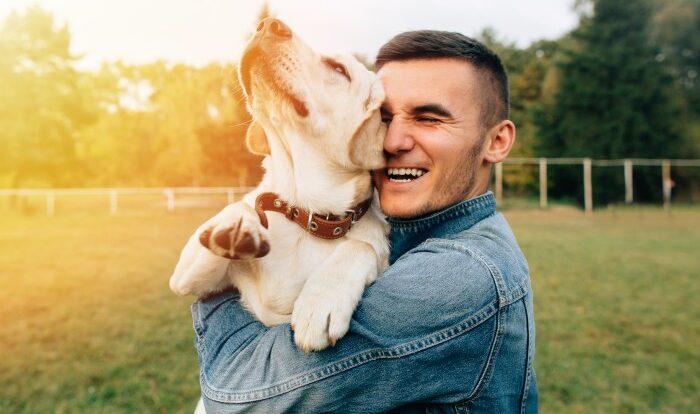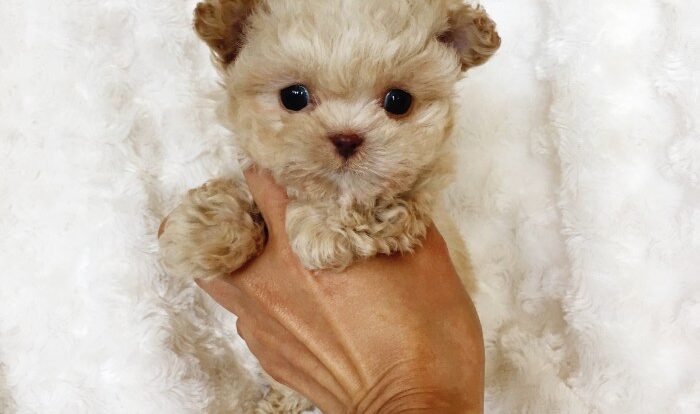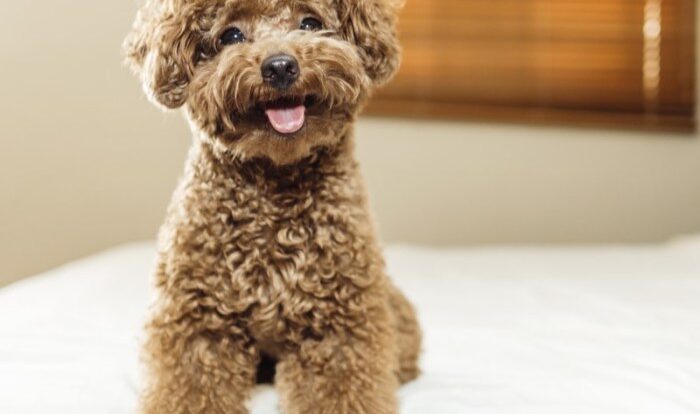Buying a schnauzer puppy opens up a world of excitement and responsibility. From researching breeds to training and long-term care, this guide covers all you need to know before welcoming your new four-legged companion into your home.
Researching Schnauzer Breeds: Buying A Schnauzer Puppy
When looking to bring a Schnauzer puppy into your home, it’s important to understand the different breeds available and their unique characteristics. Each Schnauzer breed has its own temperament and grooming needs, so let’s explore the options to help you make an informed decision.
Miniature Schnauzer
The Miniature Schnauzer is a small and charming breed known for its friendly and outgoing personality. They are great family pets and do well in various living situations, including apartments. Miniature Schnauzers require regular grooming to maintain their signature beard and coat.
Standard Schnauzer
The Standard Schnauzer is a medium-sized breed that is energetic and intelligent. They are known for their loyalty and make excellent watchdogs. Standard Schnauzers have a wiry coat that requires regular grooming to prevent matting and keep them looking their best.
Giant Schnauzer
The Giant Schnauzer is the largest of the Schnauzer breeds and is known for its strength and protective nature. They are confident and fearless, making them great guard dogs. Giant Schnauzers have a dense, double coat that requires regular brushing and grooming to keep it in top condition.
By understanding the characteristics of Miniature, Standard, and Giant Schnauzers, you can choose the breed that best fits your lifestyle and preferences when bringing a new furry friend into your home.
Finding Reputable Breeders

Finding a reputable breeder is crucial when looking to bring a Schnauzer puppy into your home. Reputable breeders prioritize the health and well-being of their dogs, ensuring that you are getting a happy and healthy puppy to join your family.
Importance of Health Screenings and Genetic Testing
Reputable breeders conduct health screenings and genetic testing on their breeding dogs to identify and prevent hereditary health issues in their puppies. This helps ensure that the puppies are less likely to develop genetic conditions that could affect their quality of life.
- Health Screenings: Reputable breeders will have their breeding dogs screened for common health issues specific to Schnauzers, such as hip dysplasia, eye problems, and heart conditions. Make sure to ask the breeder for documentation of these screenings.
- Genetic Testing: Breeders should also perform genetic testing to rule out inherited diseases that could be passed down to the puppies. This helps in producing healthier puppies with a lower risk of genetic disorders.
Red Flags to Watch Out For
When searching for a breeder, keep an eye out for red flags that may indicate a less reputable source for your Schnauzer puppy.
- Absence of Health Guarantees: If a breeder does not offer a health guarantee for their puppies, it could be a sign that they are not prioritizing the well-being of their dogs.
- Lack of Transparency: Reputable breeders are open about their breeding practices, health screenings, and living conditions of their dogs. If a breeder is reluctant to provide this information, it could be a warning sign.
- Multiple Litters Available: Be cautious of breeders who have several litters available at once or breed different types of dogs in large quantities. This could indicate a breeder more focused on profit than the welfare of the puppies.
Cost Considerations
When it comes to purchasing a Schnauzer puppy, there are several cost considerations to keep in mind beyond just the initial price of the dog. Understanding the typical cost range, additional expenses like vaccinations, grooming, and supplies, as well as comparing the price differences between adopting from a shelter versus buying from a breeder, can help you budget effectively for your new furry family member.
Typical Cost Range
- On average, the cost of a Schnauzer puppy from a reputable breeder can range from $500 to $2500, depending on factors such as pedigree, lineage, and breeder reputation.
- Adopting a Schnauzer from a shelter or rescue organization may have a lower upfront cost, typically ranging from $50 to $500, but it’s essential to consider the dog’s medical history and any necessary treatments or vaccinations that may incur additional costs.
Additional Costs
- Vaccinations: Puppies require a series of vaccinations to protect them from various diseases, which can cost anywhere from $75 to $200 per round.
- Grooming: Schnauzers have a unique coat that requires regular grooming, including trimming, brushing, and professional grooming services that can range from $30 to $90 per session.
- Supplies: Initial supplies such as food, bedding, toys, collar, leash, crate, and grooming tools can add up to around $200 to $500, depending on quality and brand.
Shelter Adoption vs. Breeder Purchase
- While adopting from a shelter may have a lower initial cost, it’s essential to factor in any necessary medical treatments, vaccinations, and spaying/neutering that may be required, potentially adding up to the cost.
- Buying from a reputable breeder ensures that you are getting a puppy from healthy bloodlines with proper care and socialization, but it comes at a higher price point upfront.
- Consider the long-term costs of owning a dog, including food, grooming, healthcare, and training, regardless of where you get your Schnauzer puppy from.
Preparing for a New Puppy

Before bringing a Schnauzer puppy home, it’s essential to ensure you have all the necessary supplies, puppy-proof your home, and establish a training schedule and routine to help your new furry friend settle in smoothly.
Supplies Needed
- High-quality puppy food
- Food and water bowls
- A comfortable bed
- Crate or carrier for safe transportation
- Toys for mental stimulation and play
- Collar, leash, and identification tags
- Puppy training pads or outdoor potty training supplies
- Grooming supplies such as a brush, nail clippers, and shampoo
Puppy-Proofing Your Home
Before your Schnauzer puppy arrives, make sure to puppy-proof your home to create a safe environment for them to explore and play. Remove any potential hazards or toxic substances from their reach, secure electrical cords, and block off stairs or rooms that are off-limits.
Setting Up a Training Schedule
Establishing a training schedule is crucial for helping your Schnauzer puppy learn good behavior and basic commands. Consistency is key, so set aside time each day for training sessions, socialization, and play. Use positive reinforcement techniques such as treats and praise to encourage good behavior.
Evaluating a Puppy
When looking to bring a Schnauzer puppy into your home, it is crucial to assess their health and temperament to ensure a happy and harmonious relationship. Evaluating a puppy involves observing their behavior, meeting their parents, and choosing the right fit for your lifestyle.
Assessing Health and Temperament, Buying a schnauzer puppy
Before choosing a Schnauzer puppy, it is important to assess their health and temperament. Look for signs of good health such as clear eyes, a shiny coat, and a lively demeanor. Additionally, observe the puppy’s behavior to see if they are friendly, playful, and responsive.
Meeting the Parents
Meeting the puppy’s parents can provide valuable insights into the potential temperament and behavior of the puppy. Observe how the parents interact with each other, with the breeder, and with you. This can give you a sense of what to expect from your future furry companion.
Choosing the Right Puppy
When choosing a Schnauzer puppy, consider your lifestyle and preferences. If you lead an active lifestyle, you may want a puppy with high energy levels. On the other hand, if you prefer a more laid-back companion, look for a puppy that is calmer and enjoys cuddling. By aligning your choice with your lifestyle, you can ensure a strong bond and a happy life together.
Bringing Your Puppy Home
When bringing your new Schnauzer puppy home, it’s essential to create a smooth transition for both you and your new furry friend. Establishing routines, introducing your puppy to family members and other pets, and setting up a training schedule are crucial steps to ensure a successful integration.
Checklist for the First Few Days
- Set up a cozy sleeping area with a comfortable bed or crate.
- Prepare a feeding schedule and provide the appropriate puppy food.
- Stock up on essential supplies such as food and water bowls, toys, grooming tools, and a leash.
- Schedule a visit to the veterinarian for a health check-up and vaccinations.
- Begin potty training by establishing a designated outdoor area and a consistent routine.
Introducing Your Puppy to Family Members and Other Pets
- Supervise the initial interactions between your puppy, family members, and other pets to ensure a safe and positive experience.
- Allow each family member to spend quality time bonding with the new puppy individually.
- Gradually introduce your puppy to other pets in a controlled environment to prevent conflicts and promote harmony.
- Monitor their interactions closely and intervene if necessary to prevent any aggressive behavior.
Establishing a Routine and Training Schedule
- Set a consistent daily schedule for feeding, potty breaks, playtime, and training sessions to help your puppy adapt quickly.
- Use positive reinforcement techniques such as treats, praise, and rewards to encourage good behavior and obedience.
- Start basic training commands like sit, stay, and come early on to establish a foundation for future training.
- Be patient, consistent, and gentle in your approach to training to build a strong bond with your puppy based on trust and respect.
Health and Wellness
Schnauzers are generally healthy dogs, but like all breeds, they can be prone to certain health issues. Being aware of these common problems and taking preventive measures can help ensure your Schnauzer lives a long and healthy life.
Common Health Issues
- Hereditary eye problems: Regular eye exams can help detect and treat issues like cataracts and retinal dysplasia.
- Skin conditions: Schnauzers may be prone to skin allergies and conditions like dermatitis. A balanced diet and regular grooming can help prevent these issues.
- Obesity: Schnauzers love to eat, so it’s important to monitor their diet and ensure they get enough exercise to prevent obesity-related health problems.
Vaccination Schedules and Regular Vet Check-ups
- Follow your veterinarian’s recommended vaccination schedule to protect your Schnauzer from common diseases like distemper, parvovirus, and rabies.
- Regular vet check-ups are essential to monitor your Schnauzer’s overall health and catch any potential issues early.
Maintaining Physical and Mental Well-being
- Provide regular exercise to keep your Schnauzer physically fit and mentally stimulated.
- A balanced diet tailored to your Schnauzer’s needs can help prevent obesity and other health problems.
- Engage in regular grooming to keep your Schnauzer’s coat healthy and prevent skin issues.
- Offer mental stimulation through interactive toys and training to prevent boredom and behavioral issues.
Training and Socialization
Training and socialization are crucial aspects of raising a well-behaved and happy Schnauzer puppy. Proper training techniques and exposure to various environments can help shape your puppy’s behavior and ensure they grow up to be a well-adjusted companion. Here are some tips to help you navigate this important phase of your puppy’s development:
Basic Training Techniques
- Start with basic commands such as sit, stay, and come. Use positive reinforcement techniques like treats and praise to encourage good behavior.
- Consistency is key. Practice short training sessions multiple times a day to reinforce learning and establish good habits.
- Patience is essential. Remember that puppies are learning and may not get everything right away. Be patient and consistent in your training approach.
- Consider enrolling your puppy in a puppy training class to socialize them with other dogs and people while learning valuable obedience skills.
Importance of Socialization
Socialization is crucial for Schnauzer puppies to develop into well-rounded and confident dogs. Exposing your puppy to different environments, people, and animals from a young age can help prevent fearfulness and aggression later in life. Here are some tips for effective socialization:
- Introduce your puppy to various sights, sounds, and smells in a positive and controlled manner to build their confidence.
- Arrange playdates with other friendly dogs to help your puppy learn appropriate social behaviors and communication skills.
- Take your puppy on regular outings to different places like parks, pet stores, and busy streets to expose them to various stimuli and environments.
Addressing Behavioral Issues
- Be proactive in addressing common behavioral issues such as barking, chewing, and digging. Redirect your puppy’s behavior to more appropriate activities and provide plenty of mental and physical stimulation.
- Consistency in training and setting clear boundaries is essential to prevent and correct behavioral problems. Use positive reinforcement to reward desired behaviors and ignore or redirect unwanted behaviors.
- If you’re struggling with behavioral issues, consider consulting a professional dog trainer or behaviorist for guidance and support.
Long-Term Care and Commitment

When bringing a Schnauzer puppy into your life, it’s essential to consider the long-term care and commitment required to provide them with a happy and healthy life. Schnauzers have an average lifespan of 12 to 15 years, so it’s important to be prepared for the journey ahead.
Adult Schnauzer Care
Adult Schnauzers have specific care needs to ensure they thrive physically and mentally. Here are some essential aspects to consider:
- Nutrition: Provide a balanced diet rich in high-quality protein and essential nutrients to support your Schnauzer’s overall health. Avoid overfeeding to prevent obesity, a common issue in the breed.
- Exercise: Regular exercise is crucial to keep your Schnauzer physically fit and mentally stimulated. Engage in daily walks, playtime, and interactive activities to meet their energy levels.
- Mental Stimulation: Keep your Schnauzer’s mind active with puzzle toys, training sessions, and new experiences to prevent boredom and behavioral issues.
Building a Lifelong Bond
To ensure a strong and lasting bond with your Schnauzer companion, consider the following tips:
- Quality Time: Spend quality time with your Schnauzer through grooming sessions, training, playtime, and cuddles to strengthen your connection.
- Routine Care: Maintain regular vet check-ups, grooming sessions, and dental care to ensure your Schnauzer’s health and well-being are always a top priority.
- Training and Socialization: Continue training and socializing your adult Schnauzer to reinforce good behavior and positive interactions with other pets and people.
Closure
In conclusion, bringing a schnauzer puppy into your life is a rewarding journey filled with love, companionship, and a lifelong commitment. By following the guidelines in this guide, you’ll be well-prepared to provide a happy and healthy life for your new furry friend.






